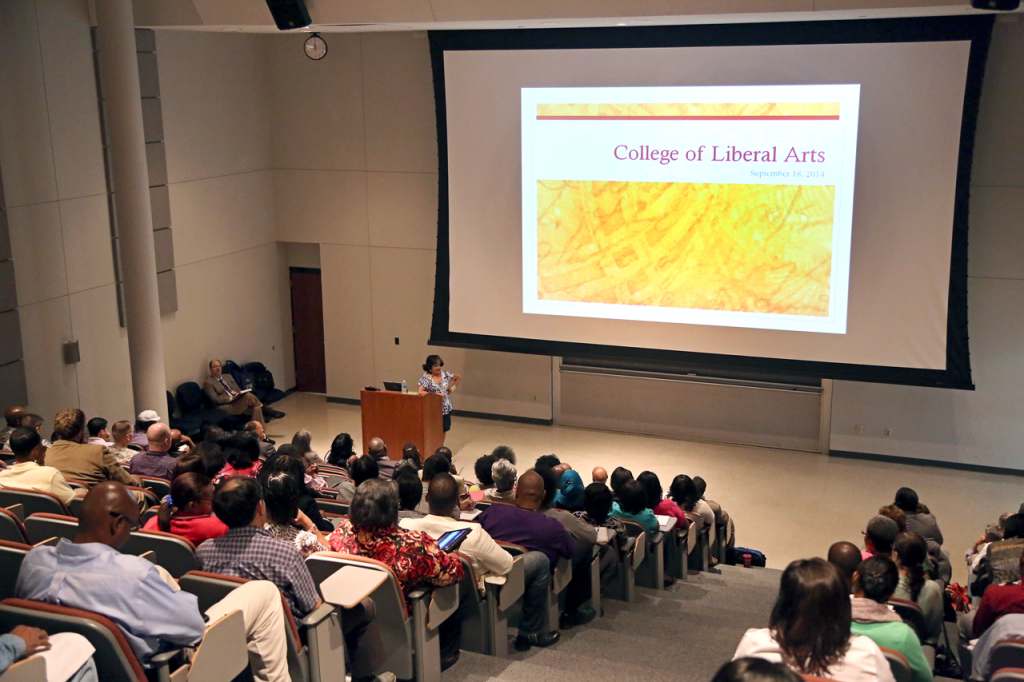
Jackson State University President Dr. Carolyn W. Meyers envisions the College of Liberal Arts to be a “crown jewel” in liberal arts instruction “leading the nation and the world” within the next five years.
Responding to questions Thursday while on her “college tour” this week to visit and listen to the concerns of faculty in each of JSU’s colleges, she said, this is now “a gadget-driven world” with instant communications and access to resources.
“I applaud you,” she said, for embracing this technology and putting JSU on the leading edge of engaging young people and enhancing learning.
As previously on her tour, Meyers was accompanied by Dr. James C. Renick, provost and senior vice president for academic and student affairs, who also fielded questions with her at the Dollye M.E. Robinson Building before approximately 100 faculty members.
Topics included:
Building a domed athletic stadium — “Still on the table” and “right for the capital city,” she said, but delayed with the death of the late Jackson Mayor Chokwe Lumumba, a staunch supporter.
Student retention – A top issue for educators that requires one-on-one work with students, such as the Mississippi Finish in 4 Campaign that JSU is supporting along with the Institutions of Higher Learning, as well as changes beyond the college setting regarding loan capacity.
Community outreach – “We need to share the good news about Jackson State,” she said, with greater community engagement and urban education. This includes involving students in urban planning and adding JSU’s resources to the intellectual growth of the city. She said JSU is central to Jackson economic development downtown.
Future of libraries – Libraries are increasingly more important on the campus, not less, because of new media, said Renick. He explained that while technology can supply information and speed communication, libraries are evolving to meet new needs, “bringing people together” to address complex problems. These information centers are the nexus for intellectual discovery and expansion.
Other issues: Campus shuttle transportation, race relations (the Margaret Walker Center could figure in to an expanded role, she said), salaries, and managing larger enrollment.







